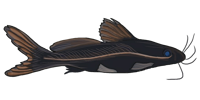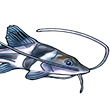racoll wrote:The reason i say no live bearers is that they prefer harder and more alkaline water than all the other fish you want to put in.
Unfortunately thats the only type of water you get in south east england.

Indeed it is, unless you start using Reverse Osmosis (and to do that is an outlay of at least as much as the tank in this case costs, or an almost weekly visit to the LFS for a "top-up" of RO water at some cost - I haven't really asked what the price is, but a basic RO system will set you back around 60 pounds minimum, and then you have to buy something to store the water too).
I agree that if you want to spawn these fish then you may need soft acidic water.
However just to keep fish that were tank bred in the far east, or the Czech Republic, and then held for weeks at the LFS (in local tapwater) is fine.
I really don't believe it is necessary to provide "bread and butter" tropical fish such as neon tetras and
with soft acid water.
Mats, you have similar water? I assume your fish are all healthy?
I live about 10 miles from Woking, and until about three weeks ago, I didn't have an RO system, and my fish have generally been healthy and happy, and the cases of bad health have been related more to the fact that even tho' I know what to do, I don't always do what I tell others to do... Bad water-changing regimes, no matter what source the water is, will kill fish.
I had
spawn in my tank (although no fry, which I wouldn't attribute to water conditions, but rather the simple fact that there are 30-odd other fish in the tank, most of which will see Corydoras eggs as a nice snack).
Aside from some "experimental additions", the My Cats list does list the fish that I've got, most of which "prefer soft water", and many are not Asian/Eastern european bred, but wild-caught too. (Pim pictus x 5, Peckoltia vittata, Gold nugget for example).
I look after my father's tank and we use neat (very hard) tapwater in that one. Some of the congo tetras are over ten years old, and the clown loach and talking catfish are perhaps 15 years old. All these fish come from soft water habitats. There are also some wild caught species such as Rineloricaria, Hassar & Otocinclus in there too. The Otocinclus are even gravid (I can see the little yellow eggs). I am sure they are all as happy as they can be.
I think it is much more important to provide the correct temp, substrate and diet. Providing a natural tank with dim lighting, tea stained water, bogwood, sand and some live plants will be enough to keep these fish happy.
I couldn't agree more. Good care is more important than the pH and such. Of course, for REALLY good conditions, you want to try to replicate something close to the conditions the fish live under in nature, but some of the common fish in the trade haven't ever seen a river even on a picture-card...

--
Mats






